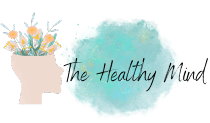Are you tired of the same old meditation routine? Sitting in silence can be powerful, but there are countless other creative approaches to explore for self-care and personal growth.
From movement meditations to sound baths, this blog post will guide you through a variety of exciting practices that will help you tap into your inner peace and unlock new levels of mindfulness.
Get ready to step outside your comfort zone and dive deeper into your spiritual practice with these innovative techniques!
What is Meditation?
Meditation is an ancient practice that has been used for centuries to promote physical and mental well-being. There are many different types of meditation, but the basic premise is to sit quietly and focus on your breath or a mantra. The goal is to clear your mind of all thoughts and to be present in the moment.
Meditation has been shown to have numerous benefits, including reducing stress, improving sleep, and increasing focus and concentration. It can also help to boost your immune system, lower blood pressure, and reduce pain.
Benefits of Meditation
The physical and mental health benefits of meditation are well-documented. In addition to reducing stress, anxiety, and depression, meditation has been shown to improve sleep quality, boost immunity, and increase focus and attention.
But meditation is not just about physical and mental health; it is also about personal growth. By taking time each day to sit in silence and be with yourself, you can develop a greater sense of self-awareness and learn to quiet your mind. This can lead to greater clarity in your thinking and improved decision-making skills.
In addition, the practice of meditation can help you develop a more positive outlook on life. Studies have shown that regular meditators have increased levels of happiness and satisfaction with their lives. They also report feeling more connected to others and having more compassion for themselves and others.
Creative Approaches to Meditating
Meditation doesn’t have to be limited to sitting in silence. In fact, there are many creative approaches to meditating that can be used for self-care and personal growth.
Some people find it helpful to meditate with music. There are many types of meditation music available online and on streaming services like Spotify. Whether you choose relaxing piano tunes or something more upbeat, make sure the music is quiet enough that you can still focus on your breath.
Another approach is to use guided meditation. This can be especially helpful if you’re new to meditation or have trouble focusing. There are many free guided meditations available online and on YouTube. Just do a search for “guided meditation” and see what resonates with you.
If you’re someone who loves being outdoors, try a walking meditation. You can do this anywhere – even just around your neighborhood. Pay attention to your surroundings and notice the sensations in your body as you walk. Again, focus on your breath and let everything else fall away.
Don’t forget about mantra meditations. Mantras are simply words or phrases that you repeat during meditation. They can be anything that has meaning for you – from a simple “om” to a affirmations like “I am love.” Experiment with different mantras and see which ones resonate with you the most.
The Importance of Establishing a Routine and Sticking to It
When it comes to meditation, there is no one-size-fits-all approach. However, one of the most important things you can do to set yourself up for success is to establish a routine and stick to it.
Why is this so important? First, because regularity is key to reaping the benefits of meditation. Second, because having a set time and place for your practice helps to create a container for your experience. It can be easy for our minds to wander when we’re trying to meditate, but if we have a clear structure in place, it can be easier to stay focused.
Of course, establishing a routine doesn’t mean that you have to meditate at the same time every day or in the same location. But it can be helpful to have some sort of consistency from one session to the next. For example, you might decide that you’ll meditate for 20 minutes every morning after you brush your teeth. Or maybe you’ll commit to meditating for 5 minutes each night before bed.
Find what works for you and then make it part of your daily routine. The more regular your practice becomes, the more likely you are to see lasting benefits in terms of your mental and emotional well-being.
Posture and Breathing Techniques for Optimal Focus
When it comes to posture, there are a few key things to keep in mind for optimal focus while meditating. First, sit with your spine straight and your chin slightly tucked in. This will help you to avoid any distractions and also improve your breathing. Second, place your hands in a comfortable position- either on your knees or in your lap with your palms up. This will help you to remain grounded and focused during your meditation practice.
As far as breathing goes, there are a few different techniques you can use to help improve your focus. One is to breathe deeply and slowly through the nose, filling up the lungs from the bottom up. Another is to focus on the breath moving in and out of the body, paying attention to the rising and falling of the chest. Whichever technique you choose, make sure that you are not forcing the breath but rather letting it flow naturally.
Different Types of Meditations (e.g. Mindful Walking, Guided Visualization)
When it comes to meditation, there are many different approaches that can be taken. Mindful walking is one option that can be beneficial for both self-care and personal growth. This type of meditation involves being aware of your surroundings and paying attention to your breath as you walk. Guided visualization is another option that can help you relax and focus on positive images and thoughts.
Tips for Newbies
If you’re new to meditation, it can be helpful to have guidance to get started. Here are some tips for getting the most out of your meditation practice:
- Start with a short meditation. If you’re just beginning, it’s best to start with a shorter meditation session and gradually increase the length of time you meditate.
- Make it comfortable. When you’re first starting out, find a comfortable position to sit or lie in. Once you get more comfortable with meditation, you can try other positions (like walking or standing) that may better suit your needs.
- Be patient. Meditation takes practice and patience is key. Don’t get discouraged if your mind wanders or if you don’t feel like you’re making progress at first. Just keep coming back to your breath and trust that each session is taking you closer to your goal.
- Don’t overthink it. Try to quiet your mind and don’t focus on forcing a specific outcome from your meditation practice. Simply observe yourself as you meditate and be aware of any changes in your body or thoughts.
- Use an app or guided meditation audio if needed. If you’re having trouble settling your mind, try using an app or guided meditation audio to keep you focused on the present moment.
Resources for Learning More About Mediation
There are many different ways to meditate, and each person may find a different method or combination of methods that works best for them. Here are some resources for learning more about meditation and finding a practice that fits you:
Headspace is a popular app with guided meditations for beginners, intermediate, and advanced practitioners.
The Mindfulness App also offers guided meditations, as well as mindfulness exercises and articles.
Smiling Mind is a mindfulness meditation app geared toward children and teens, but adults can use it too!
Calm.com is a website with relaxation techniques, breathing exercises, sleep aids, and more.
Stop, Breathe & Think has meditations for specific situations like anxiety, stress, anger management, and more.





Add Comment